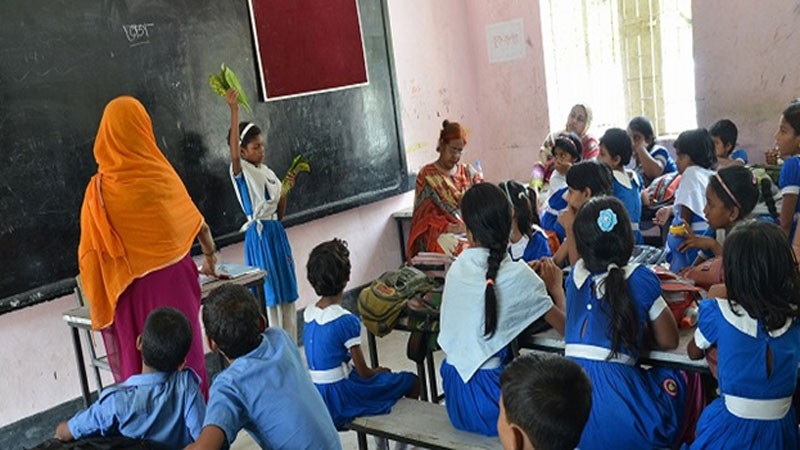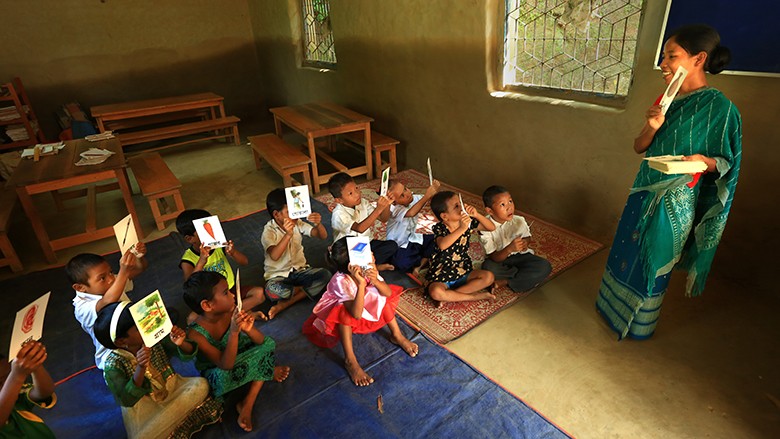Quality teachers
Teaching is one of the most complex activities in the world. Teacher quality is said to be the most crucial factor influencing learner outcomes. So, teachers must have extraordinary qualifications to ensure quality education. Definitions of quality teaching have changed and will continue to change over time as society’s values change. Berliner (2005) describes teacher quality as a teacher who shows evidence of certain teaching qualities in students’ lives. These qualities include more than assessing knowledge on a certification test.

quality teachers
On a study of five high-achieving countries (Australia, Canada, China, Finland and Singapore) with strong support for teachers’ professional learning and practice, Linda Darling-Hammond (2021) defined the teaching quality that “teaching as rooted in a wide-ranging knowledge base that combines an understanding of content, pedagogy, and learners which is focused on meeting students’ diverse social, emotional, and academic needs – rather than just covering the curriculum. Furthermore, the recognized need for teachers to be able to respond to students’ individual trajectories for learning if they are to be effective means that they must study both the learning process and the learners they teach.”

The quality teacher must ensure effective goal-setting, clear communication, acting as a role model, adaptability and flexibility, preparation, self-reflection, life-long learning, promoting a love of learning. A good teacher should be focused on making sure their students truly understand the material, rather than just lecturing and hoping it will compute. Great teachers are concerned with the retention of their students, making sure they know and can do the work, not just checking off the boxes for the lesson plan. Great learning comes from teachers who are focused on that comprehension.
Citing UNESCO and the OECD, Wikipedia reports that developed and developing countries across the world are grappling unsuccessfully with the problem of providing up to date teacher education, both Initial Professional Development and continuing professional development to a diverse and large workforce. The quality of teachers in Bangladesh remains dissatisfactory, so the quality of education in Bangladesh remains low.
Teachers’ quality in Bangladesh
A school system’s essential quality measure is whether its students are learning the foundational skill for all future purposes. Teachers should have the ability to teach their students critical thinking, creativity, interpersonal skills and a sense of social responsibility, all influencing success in life, work and citizenship. But the children are not acquiring the basic skills in Bangladesh for lack of quality teachers and proper teaching methods.
According to (Mullick, 2008) of Wenzhou-Kean University, the major problems related to the teaching skills of primary school teachers in Bangladesh are: most of the teachers in Bangladesh has insufficient knowledge about content pedagogy. They are not paying adequate attention to intellectual, social, and personal development. They are ignoring the issues about the diversity of learners, improper and limited use of multiple-instructional strategies, practising one-way communication, assessing the students’ performance through the conventional methods. Most of the teachers in Bangladesh do not know the teaching pedagogy. Most of them don’t have an idea about the aim of education.
What is the problem, and what should we do?
To solve the crisis, it is vital to know its inside. Why are the quality teachers not available here? Why are the teachers not capable of teaching a quality education?
The answer is that – Quality teachers are not automatically available; they should be created. Appropriate recruitment of teachers, proper training, and other facilities, including higher salary and awarding of state honours, are essential for obtaining quality teachers. Sadly, the teacher recruitment system in the country (with few exceptions) is very frustrating. Teachers’ honorary or other facilities are very inadequate compared to other professionals. The educators blame the authority for this case. The country changed its educational policy several times. But the fact is that it is still confined to paper. As the key to ensuring quality education, the teachers have been mentioned in every educational policy, including the last one (educational policy 2010). It addressed to ensure the training facilities, incentives and satisfactory remuneration for teachers of all kinds of institutions. Besides these, there were many other commendable steps regarding increasing scholarships, ensuring gender parity in the institutions and strategies to improve literacy, vocational education and non-formal education in this policy. But it has not taken any steps yet to solve this crisis.
Teachers’ recruitment processes in the non-government sector (secondary and higher secondary level) and university are rough. After that, these levels of teachers do not have the necessary training. Promotion is a vital issue in any job. Unfortunately, it is a rare case in the educational sector in Bangladesh. There is only one promotion in the whole life of primary and secondary level teachers. The teachers of government colleges always scold their authority about this. They are deprived compared to the employees of the same rank. The non-government teachers of Bangladesh are frequently seen going on hunger strike day after day in front of the National Press Club to gain various rights such as salary, allowances, job security, promotion, MPO enrollment, and social status (Independent News 5 October 2021). Nowadays, talented young people do not want to come into the teaching profession in Bangladesh. They do not dream of their future and do not find any spirit to build a career in this profession. This profession fails to attract young people due to low wages, poor social status and lack of other facilities.
The status of teachers depends not only on social status but also on financial matters, and they are far behind in both these respects. On the other hand, UNESCO has solid recommendations for teachers’ status and says to ensure safety, professionalism and position.
Teachers’ recruitment process at the secondary level as well as the university is very rough in Bangladesh. After that, these levels of teachers do not have the necessary training. However, the World Bank says that Bangladesh needs to provide quality teachers to create a skilled population.
Since the quality of education is highly dependent on teachers’ up-gradation, the developed countries have been established the status of their teachers, so they have become developed countries. Besides that, the teachers in Russia, Indonesia, Malaysia, Turkey, India, New Zealand, and Singapore are incredibly valued. These countries are reaping the benefits of education. It is nothing but foolishness to expect a sound education system by depriving the teachers.
To clear understanding, no need to look far, the recruitment of teachers in the neighbouring Kolkata is also very nice. There is a need to pass at least an M.Ed in the recruitment of primary school teachers. And the primary school teachers are paid three times more than the teachers in Bangladesh at the same level. However, contrary to its recruits and approaches, the salary and status of the teachers of all kinds of institutions have been downgraded by an unprecedented decision of the government in the last pay scale (2015). Protests of the teachers from all tiers of instructions, primary schools to public universities, have been harshly refused, and the issue has not been resolved yet. Many dissatisfactions are slugging the teachers, which is a significant obstacle to quality teachers. The notion of teachers’ dignity has changed today because academicians are no longer the education regulators. Now influential people have taken control of education, and teachers have become puppets in their hands. It is pathetic that the teachers are controlled by non-teachers here, who don’t have verse experience in education. Besides these, teacher supervision, monitoring and accountability are also liable to make quality teachers. So there is considerable mismanagement in the educational sectors in Bangladesh. The government must pay attention to these.


Outstanding writing, Sir
Thank you very much, we highly appreciate your feedback.
Truely, you have written the real fact. Thank you so much.